The industrial Neasden neighbourhood is home to one of the most remarkable buildings in London, BAPS Shri Swaminarayan Mandir, widely known as the Neasden Temple. The magnificent marble structure is one the largest of its kind outside of India and it’s well worth one hour travel from central London to see it. I have visited the Neasden Temple recently and had an awesome guided tour with a Temple volunteer. I also had an exclusive opportunity to take pictures, so you are invited to see what I saw and learned during my visit.
BAPS Shri Swaminarayan Mandir
BAPS Shri Swaminarayan Mandir, popularly known as the Neasden Temple, is a Hindu Temple dedicated to the worship of Bhagwan Swaminarayan and the millennia-old traditions of the Hindu faith. It is a masterpiece of traditional Hindu design and exquisite Indian workmanship in the Neasden, North London.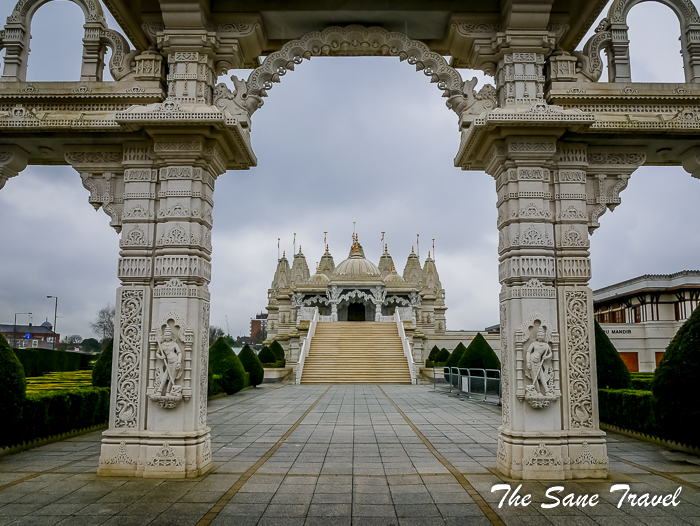

Swaminarayan Hinduism
The Temple is devoted to Swaminarayan Hinduism, one of the rapidly growing and most visible forms of contemporary Hinduism that traces its routes to the Indian state of Gujarat in the first half of the 19th century, and the life and teachings of its founding guru, Swaminarayan. Bhagwan Swaminarayan is worshipped as the supreme Godhead. Also what distinguishes BAPS Hinduism from other forms is its focus on helping the poor and addressing the erosion of moral and spiritual values in society. Followers do not consume alcohol, eat meat, steal or engage in sex outside of marriage, and they maintain a purity of conduct.
Building of Temple
The Mandir was built and funded entirely by the Hindu community. The Mandir complex represents an act of faith and collective effort. Inspired by Pramukh Swami Maharaj, more than 1,000 volunteers worked on the building, and many more contributed their donations or organised different activities. The temple is designed and constructed in the northern Indian style that requires Hindu architecture to “metaphorically represent the different attributes of God” with no structural steel. Building work began in August 1992 on an old used car lot. Using 5,000 tonnes of Bulgarian limestone and Italian and Indian marble, it was first hand-carved in India. More than 1,500 sculptors in Rajasthan and Gujarat worked together for three years to make the required forms. More than 26,300 individually numbered stone pieces then were shipped to London to be assembled in just two and a half years. No iron or steel was used in the construction, a unique feature for a modern building in the UK. The Temple cost £12 million to build.
● a traditional Hindu temple (mandir), the focal point of the complex,
● a permanent exhibition entitled "Understanding Hinduism"; and
● a cultural centre, the BAPS Shri Swaminarayan Haveli.
Mandir, Temple
The sanctum sanctorum of the mandir is the focal point of the complex and serves as the centre of worship. A mandir is, in a very literal sense, a house of God. From the conceptual design and vision of Pramukh Swami Maharaj, the architect C. B. Sompura and his team created the mandir entirely from stone. According to Mr. Yogesh Patel, the architecture of the temple is evolved from nature. In the old days, wise old men used to go to the mountains to meditate and be at one with God. The peace that they found there, they wanted to bring back to the towns and villages, so they built temples. The shrines represent caves, the pillars, trees and the pinnacles, the mountain peaks. Directly beneath each of the seven pinnacles seen from the outside is a shrine. Each of these seven shrines houses murtis, sacred images of the Deities, within altars. Statues of the sacred deities ‘live’ inside its shrines, ritually fed, bathed and clothed by the resident monks as if they were alive. Photographs of them are posted each day on the temple’s website.
The Abhishek Mandap
The Abhishek has an intricate traditional design. At the chamber’s heart lies the sacred image of Shri Nilkanth Varni in gilded brass. Abhishek is the ancient Hindu practice of pouring water over the sacred image of God to honour him and to attain his blessings. This ceremony is performed there daily.
Understanding Hinduism Exhibition
Beneath the Mandir is the permanent exhibition ‘Understanding Hinduism’. Through visual effects, paintings, tableaux and traditional craftwork, it provides an insight into the wisdom and values of Hinduism. Visitors can learn about the origin, beliefs, and contribution of Hindu seers, and how this ancient religion is being practiced today through traditions such as the BAPS Swaminarayan Sampraday.
Haveli
Adjoining the Mandir is BAPS Shri Swaminarayan Haveli, a multi-function cultural centre. Whereas the Mandir is carved from stone, the Haveli uses wood: English Oak and Burmese Teak have been fashioned into panels, arches, and screens, all carved by over 150 craftsmen in India with geometric patterns depicting peacocks, elephants and lotus flowers. The cultural centre houses a vast pillarless prayer hall with enough space for 3,000 people, a gymnasium, medical centre, dining facilities, bookstall, conference facilities, and offices. On Saturdays, it hosts 2,000-strong prayer meetings. A souvenir shop sells henna kits, a wide selection of books, postcards, CDs, DVDs and herbal health products.
Practical information
BAPS Shri Swaminarayan Mandir is located in Neasden, North London close to Neasden and Wembley Park underground stations on the Jubilee Line and Harlesden station on the Bakerloo Line. I came to the Harlesden underground station and then took a short ride by bus number 224 to the Temple. A trip from central London takes about one hour.
Special thanks go to Mr Yegesh Patel for organising my visit and granting permission to take photos.
Like it? Pin it!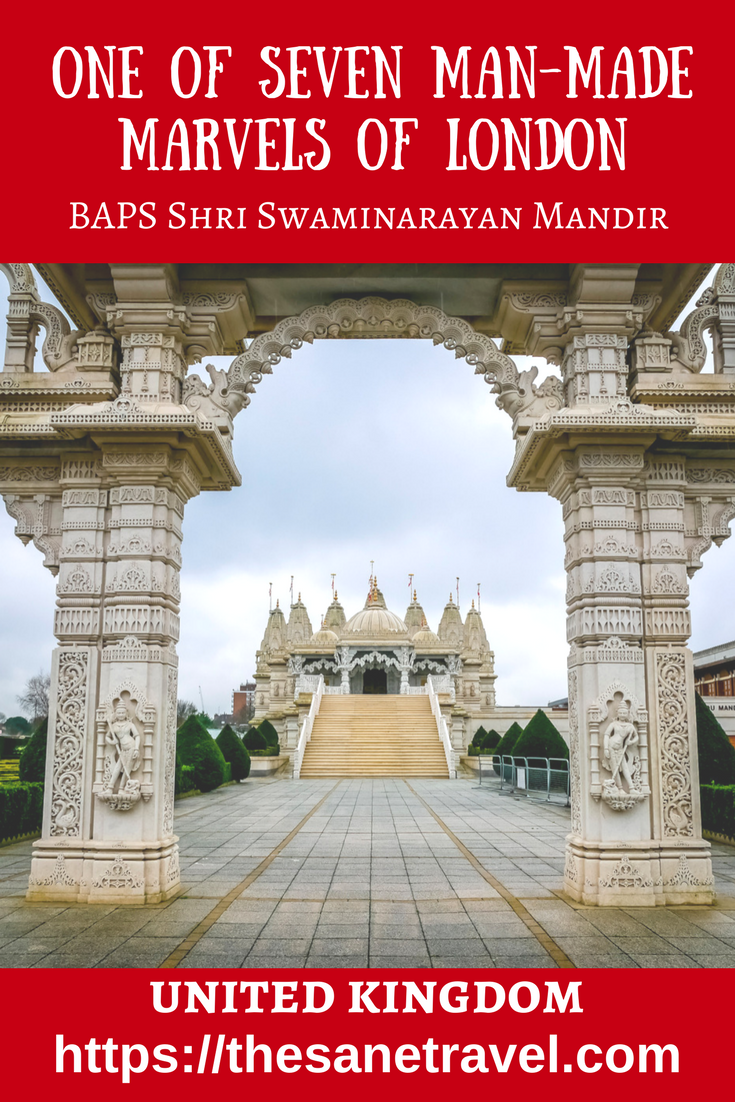
Author: Anita Sāne

About the author
Anita is a part-time traveller, passionate photographer and a retired career woman from Latvia, travelling mostly solo for more than 15 years. She is a skilled travel planner who plans and executes her travels by herself. Anita wants to show you how to travel the world and open your mind to new experiences. Follow her on Facebook, Instagram, Pinterest, Twitter and Bloglovin.
{module Sign for my blog news! (2)}



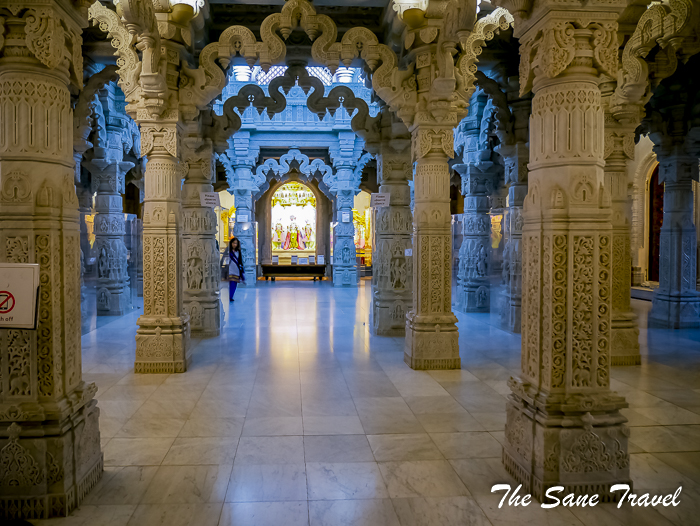
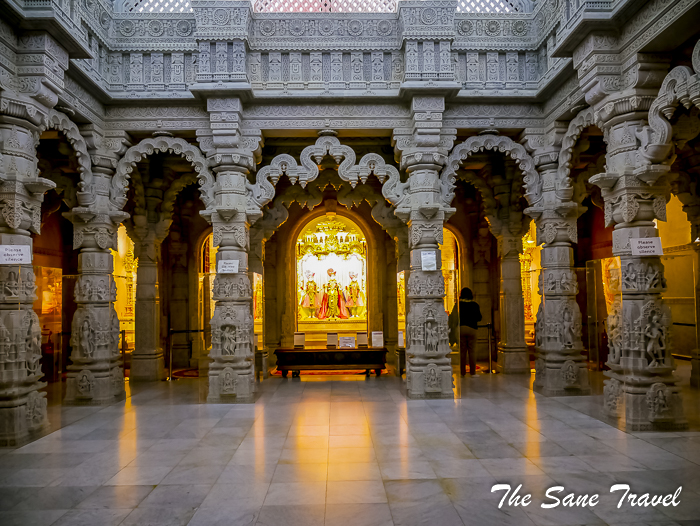

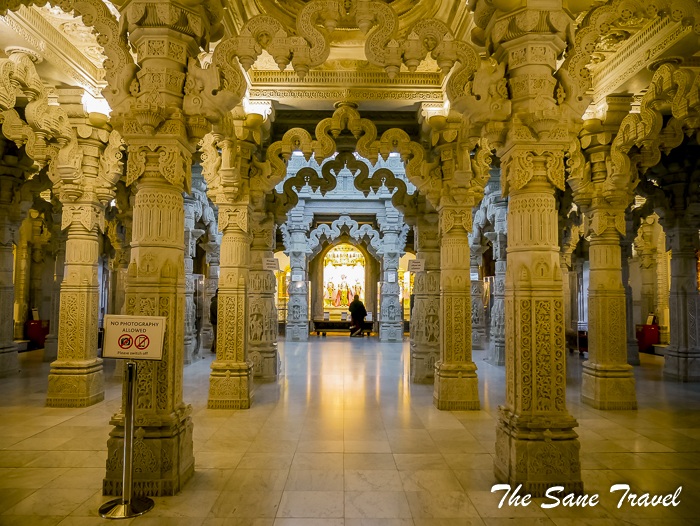





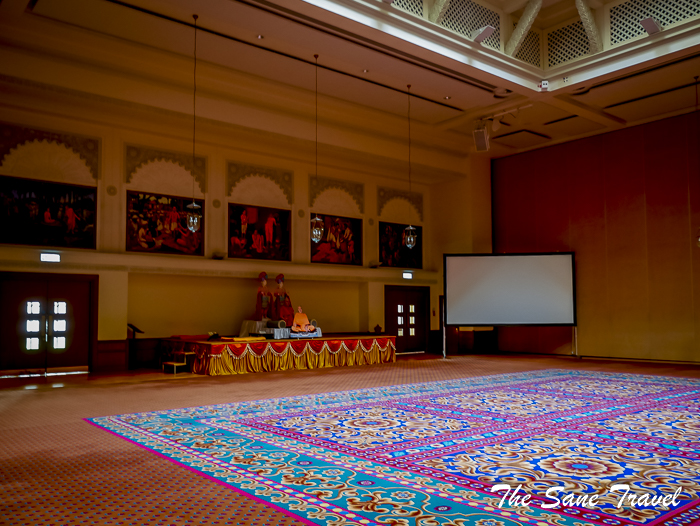



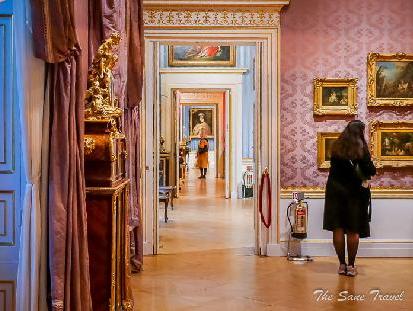
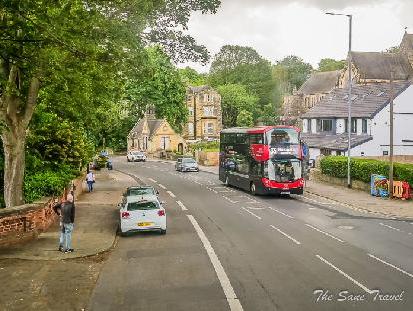
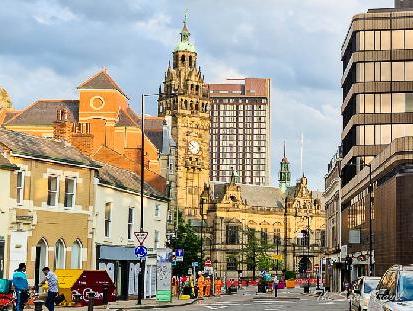
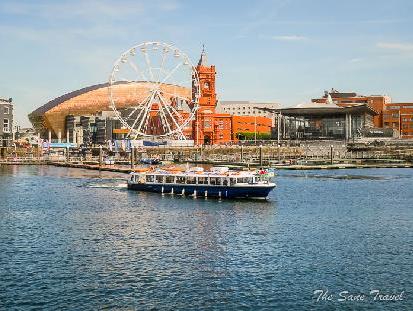
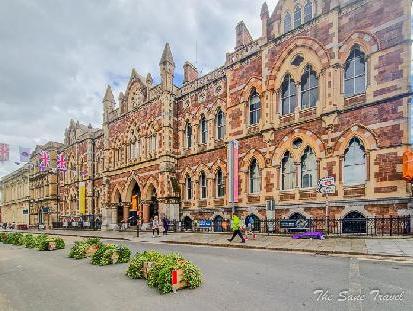
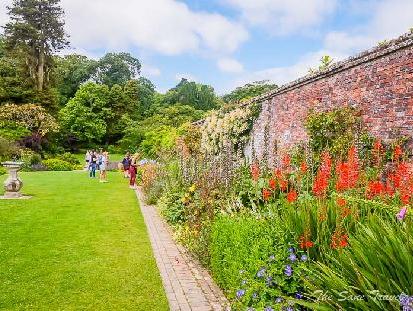

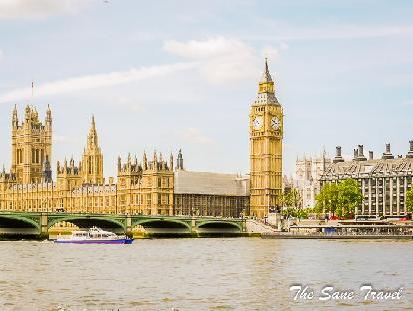
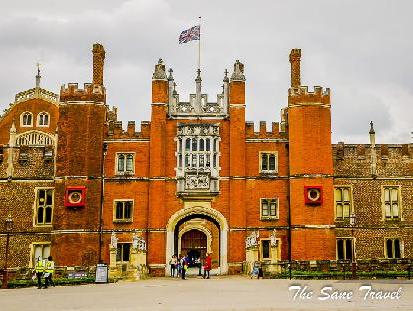
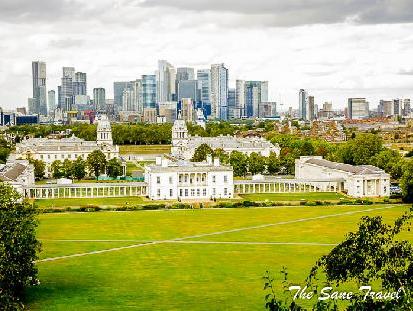
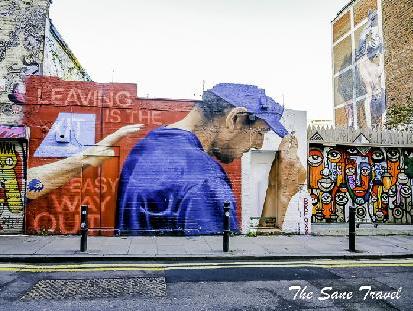
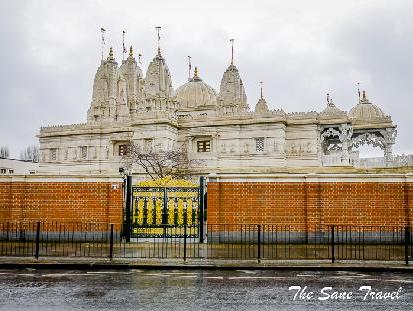
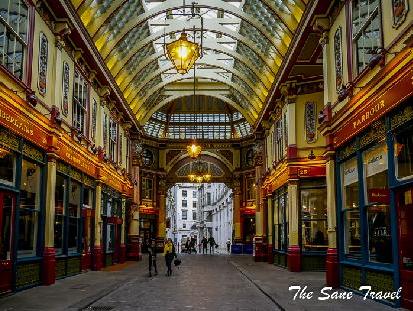
Report
My comments